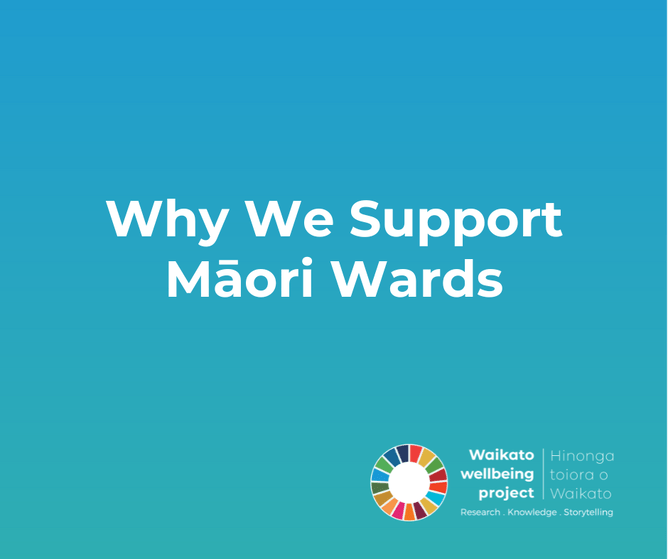The Waikato Wellbeing Project is an apolitical initiative. We do not endorse or oppose individual politicians - whether candidates, councillors, or MPs.
But we are not politically indifferent. Wellbeing is inherently shaped by political decisions. Since our inception, we have made a genuine and public commitment to being a Te Tiriti-focused organisation: supporting a positive and inclusive future for everyone in Waikato, and recognising Te Tiriti o Waitangi as one of Aotearoa New Zealand’s founding constitutional documents.
What Te Tiriti Says
Article 2
Ko te Kuini o Ingarani ka wakarite ka wakaae ki nga Rangatira, ki nga hapū – ki nga tangata katoa o Nu Tirani te tino rangatiratanga o o ratou wenua o ratou kāinga me o ratou taonga katoa…
Sir Hugh Kawharu’s English translation:
“The Queen of England agrees to protect the Chiefs, the subtribes and all the people of New Zealand in the unqualified exercise of their chieftainship over their lands, villages and all their treasures…”
Why This Matters for Local Government
Although Te Tiriti was signed between Māori and the Crown, New Zealand’s constitutional and legal arrangements now divide governance responsibilities between central and local government. Local government exercises powers delegated to it by the Crown. This means that many decisions affecting Māori’s ability to exercise tino rangatiratanga are made at council level.
New Zealand courts and the Waitangi Tribunal have consistently held that the Crown (and those exercising Crown functions) has obligations to actively protect Māori authority, interests, and participation. This extends to local government under the Local Government Act 2002, which requires councils to facilitate Māori participation in decision-making.
Māori Wards as Practical Treaty Expression
Providing for Māori wards is a reasonable, practical and cost-effective means by which councils can give effect to tino rangatiratanga. It upholds the Article 2 guarantee and is consistent with constitutional principle and case law.
Beyond Treaty obligations, Māori wards also strengthen local democracy:
They ensure that a significant and often under-represented part of the community can see themselves represented at the council table.
They bring perspectives and knowledge that may otherwise be absent from decision-making.
They enhance, not diminish, democratic rights: the principle of one person, one vote is preserved, while overall enfranchisement is broadened.
Our Position
We support Māori wards as an expression of Te Tiriti o Waitangi and as a way of building a fairer, more inclusive, and more effective local democracy. We encourage all voters to give this important issue thoughtful consideration in local body elections.


